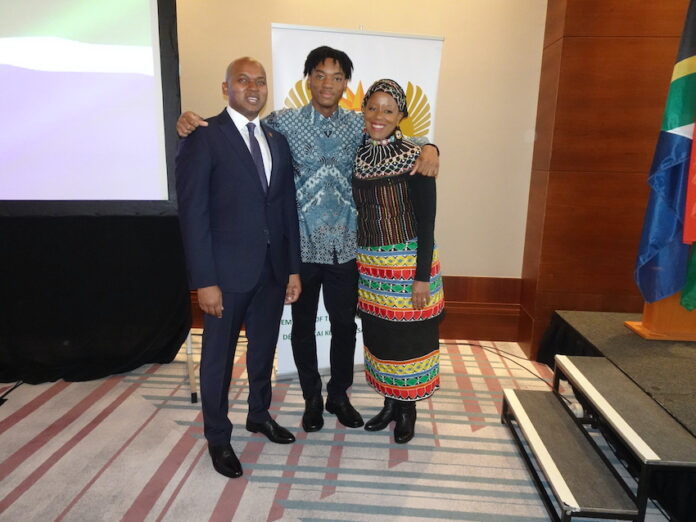Celebrating under the theme: “Consolidating and Safeguarding Democratic Gains”
Edited by Anna Popper
Freedom Day on 27 April is an annual celebration of the first-ever non-racial democratic elections in South Africa in 1994. These were the first post-apartheid national elections held in the country in which anyone could vote regardless of race. It is a milestone in their history as it marks the end of over three hundred years of colonialism, racial segregation and the establishment of a new democratic government led by Nelson Mandela, a new state subject to a new constitution. The magnitude of South Africa’s first democratic elections has never diminished and it remains an example to people and nations around the world striving for freedom, independence and democracy.
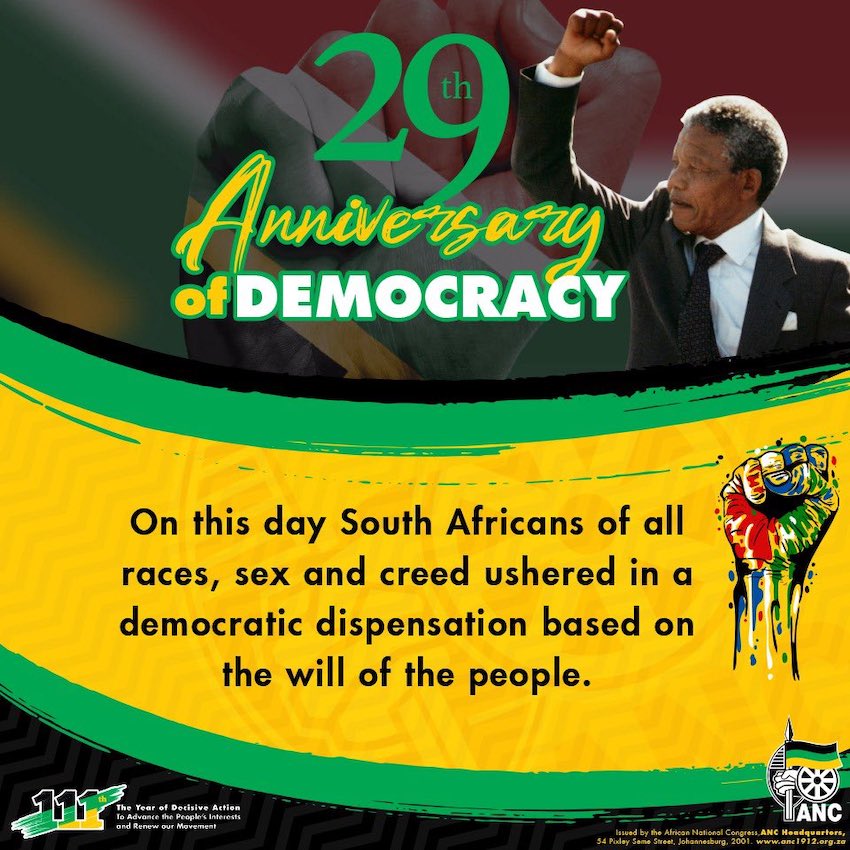
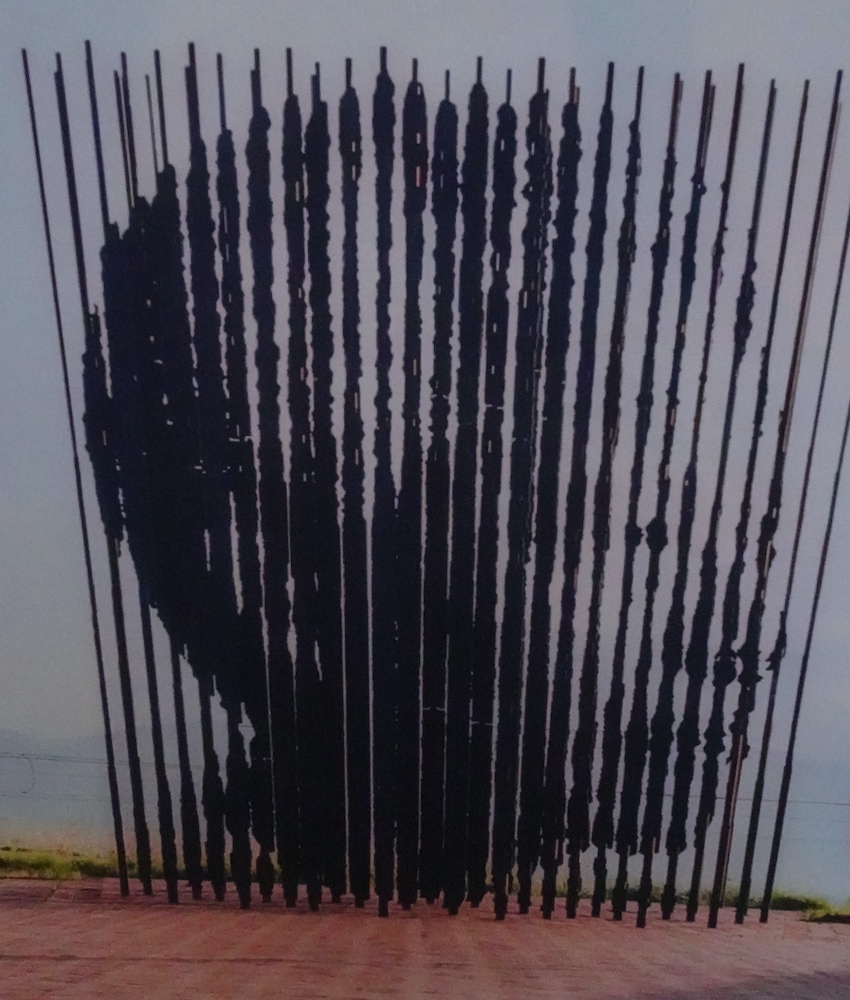
On the occasion of the National Day of the Republic of South Africa, H.E. Mr Gangumzi Tsengiwe, Ambassador of South Africa hosted a diplomatic reception at Budapest Marriott Hotel. The event was attended by members of the Diplomatic Corps, government officials and South African nationals, wearing colourful African attire.
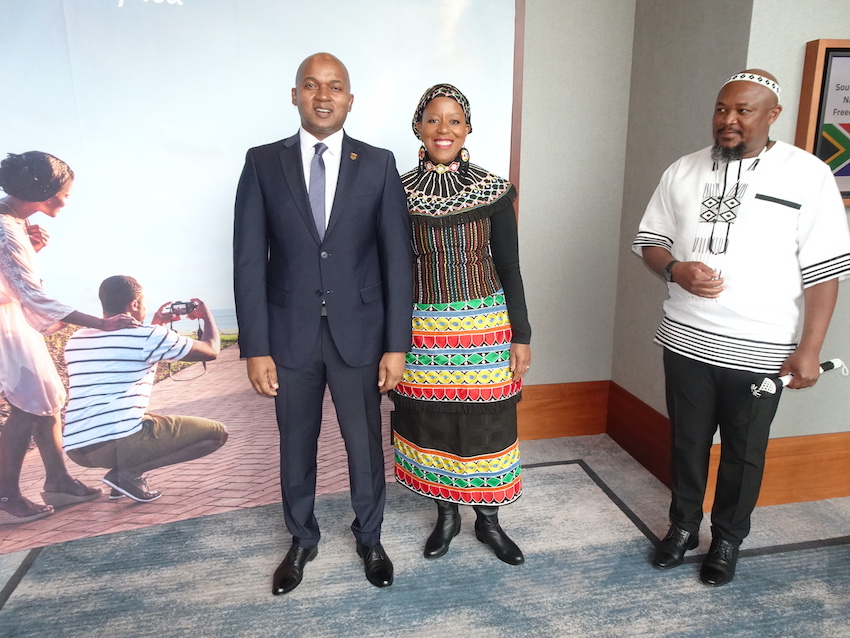
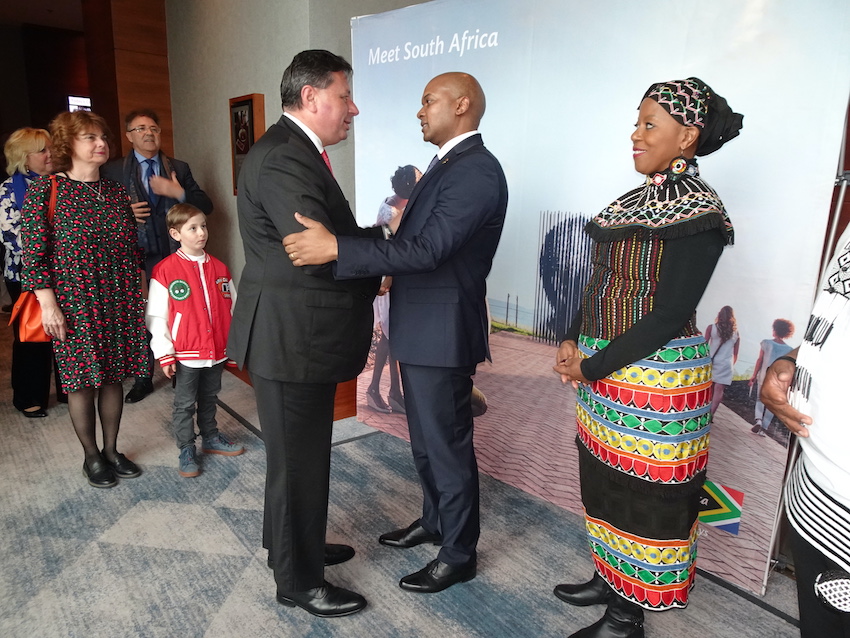
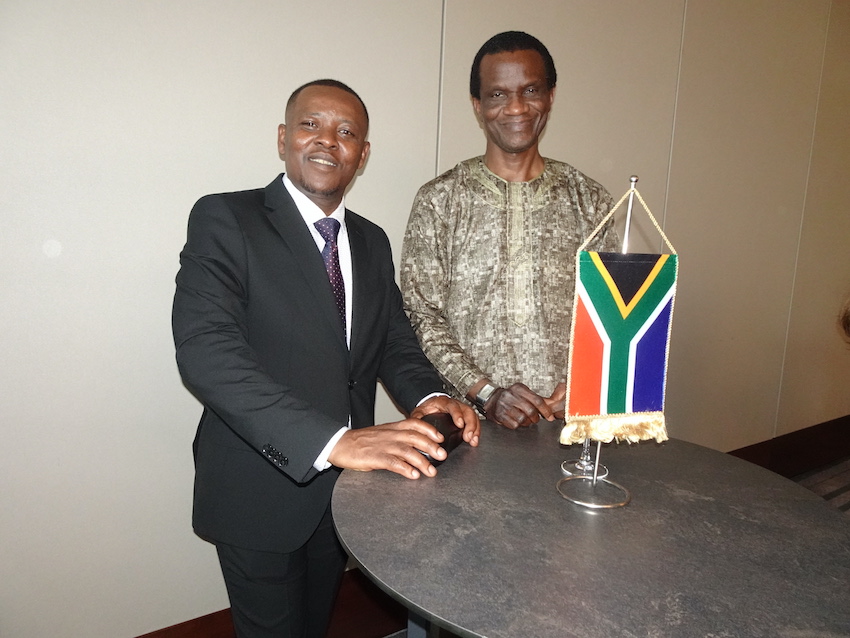
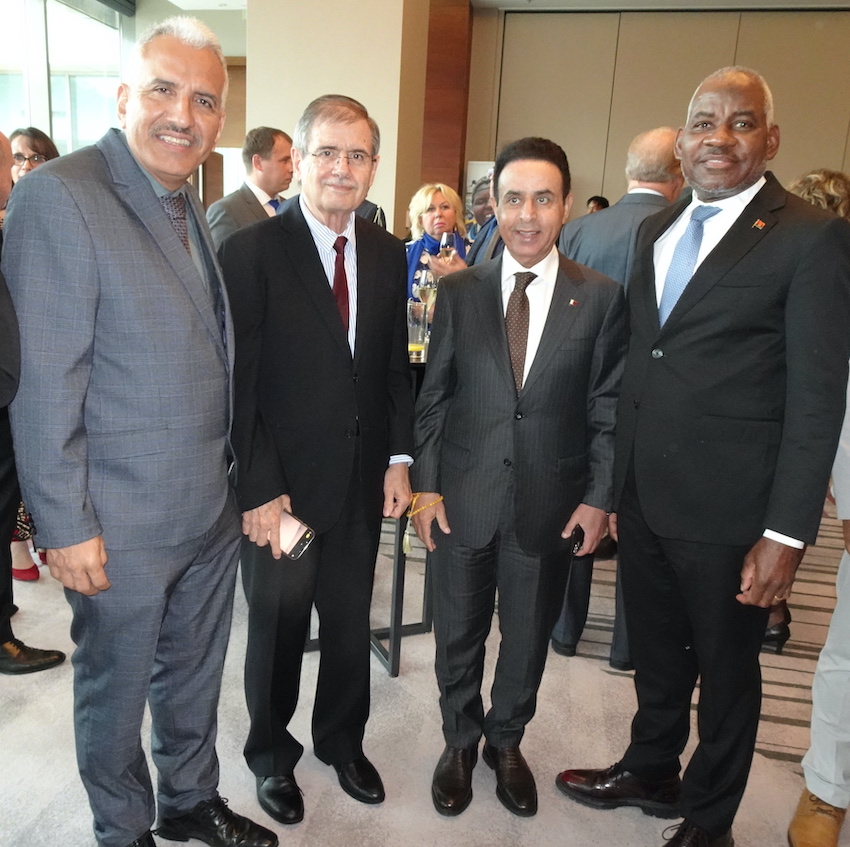
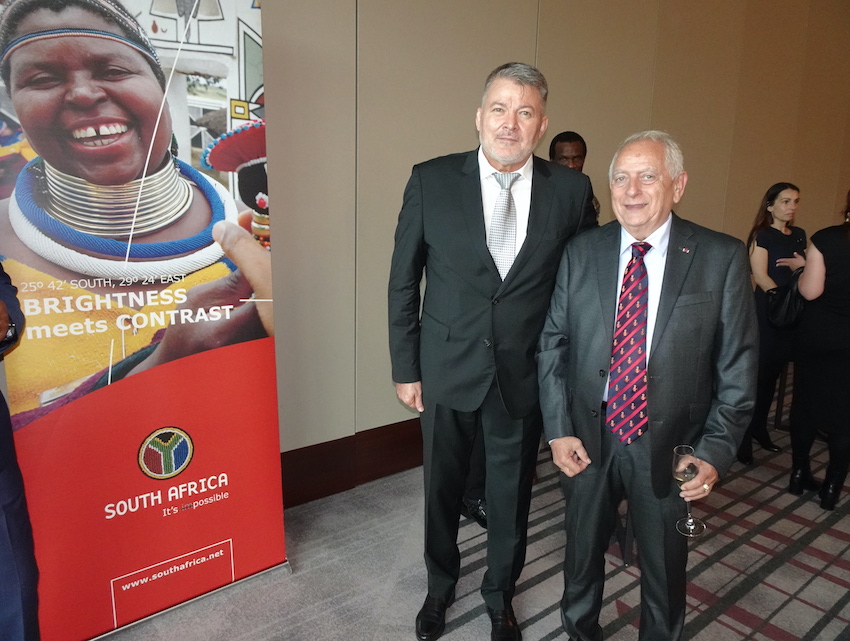
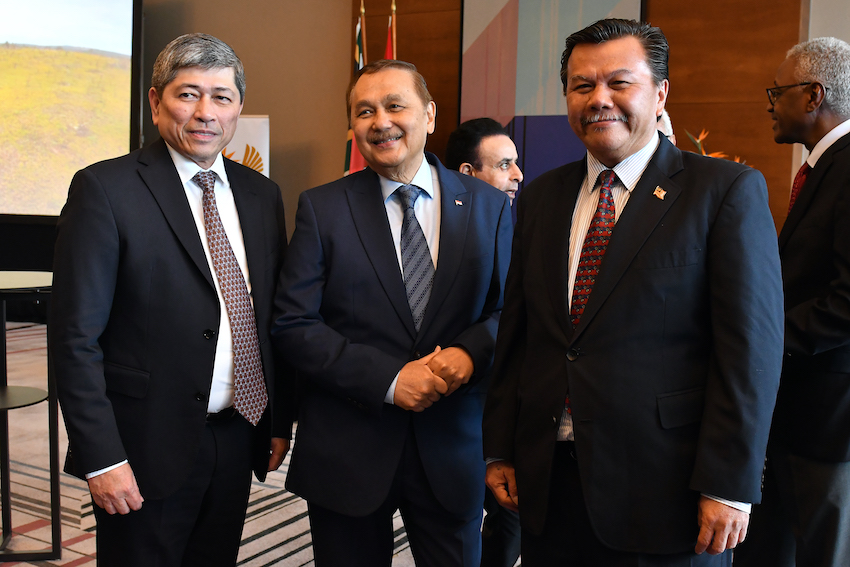
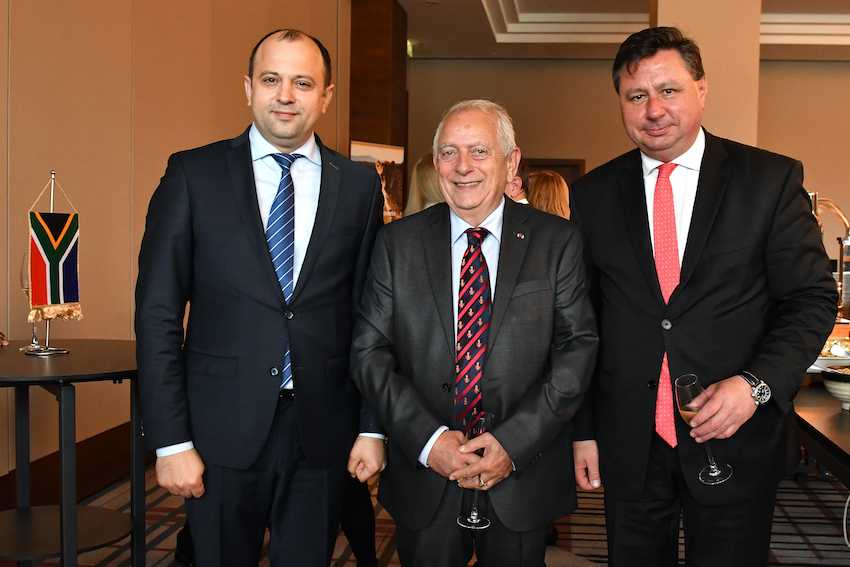
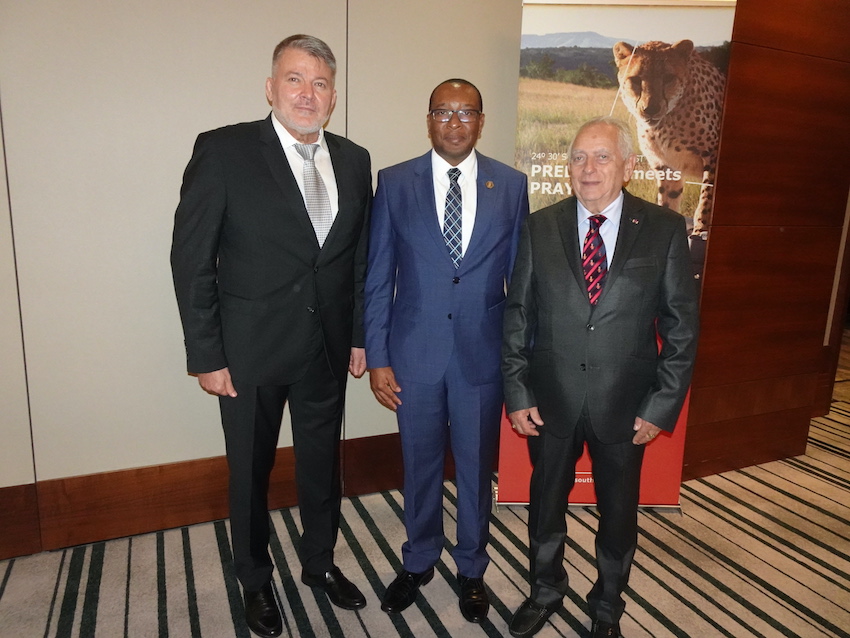
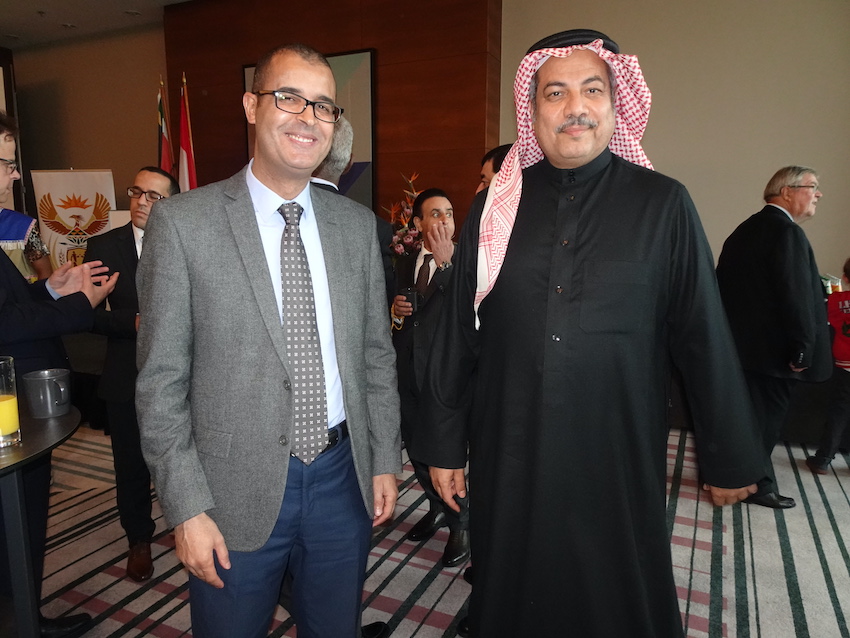
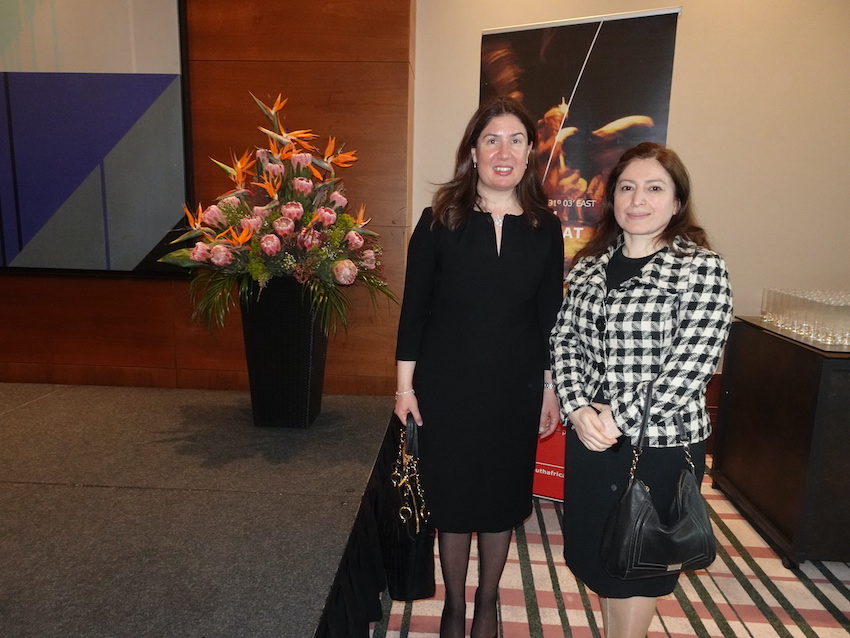
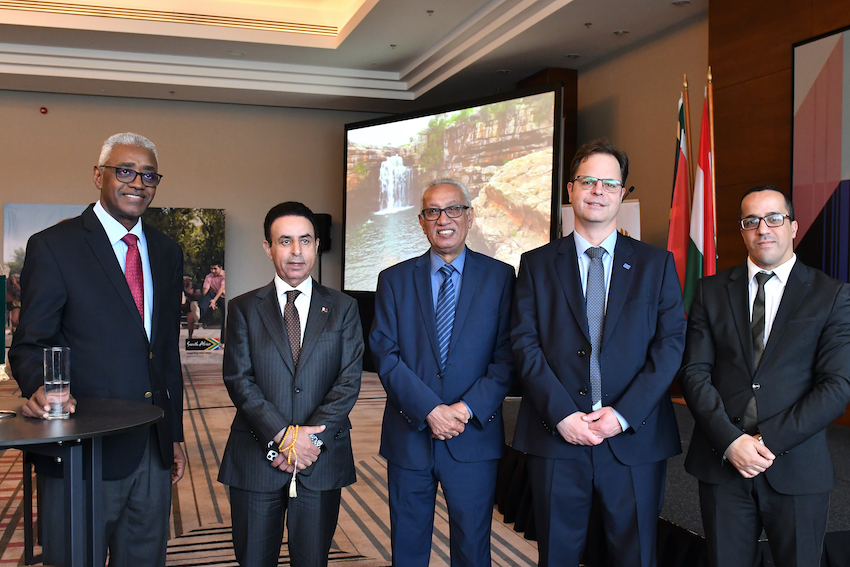
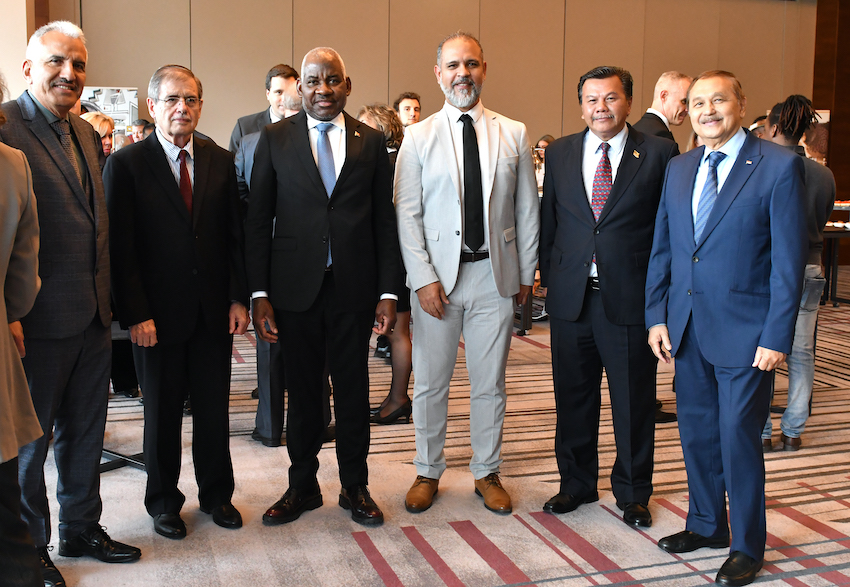
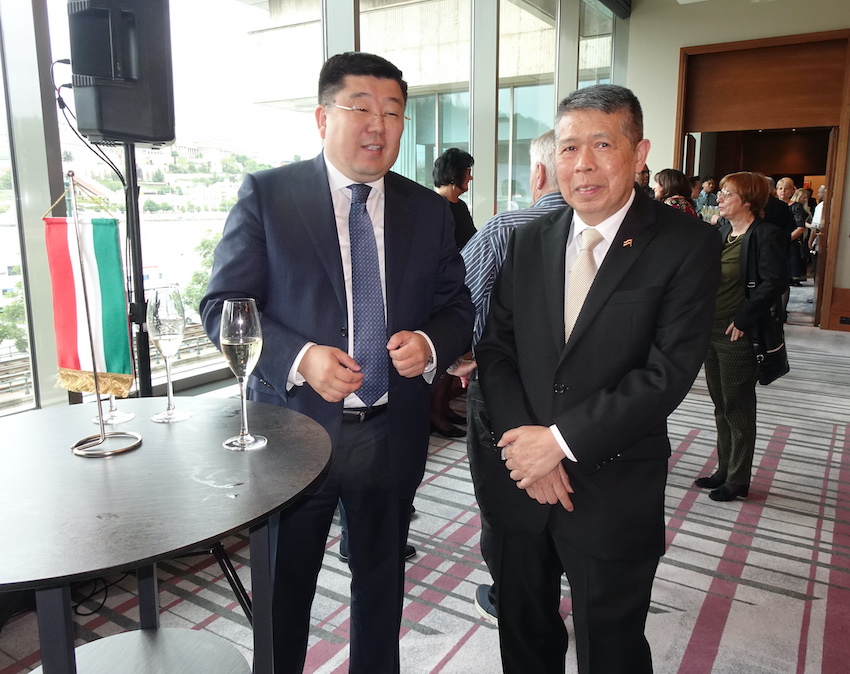
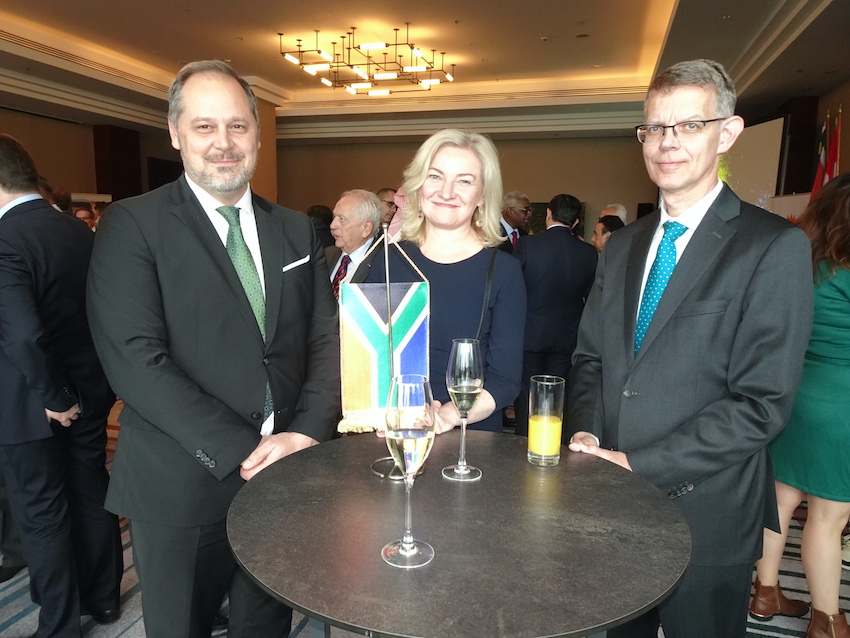
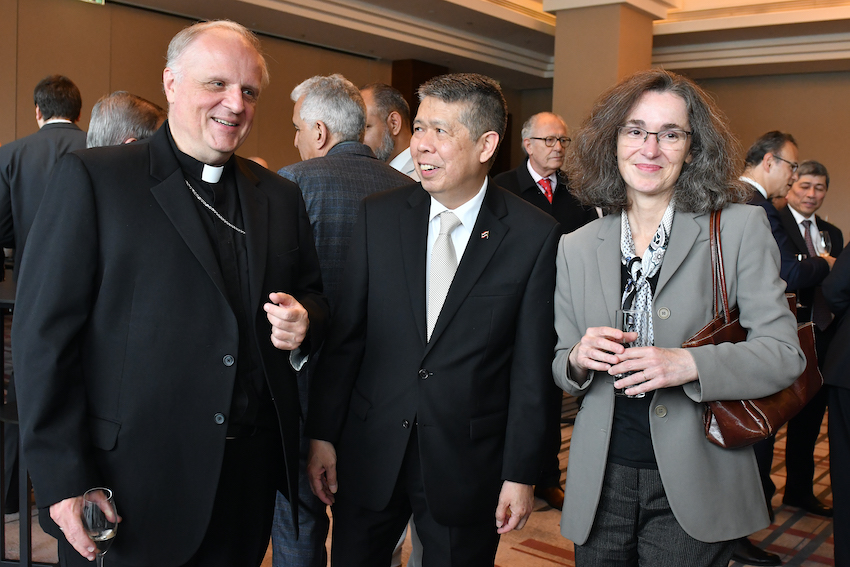
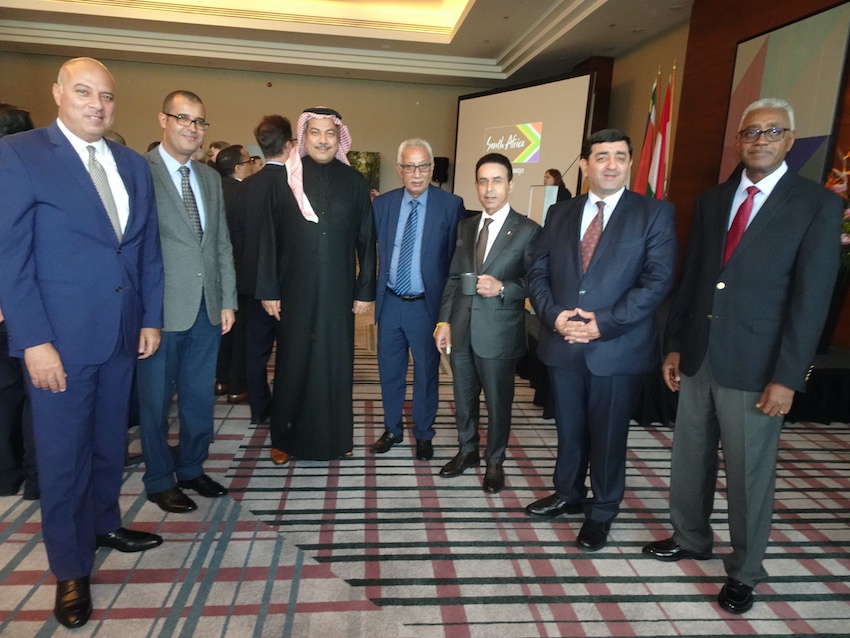
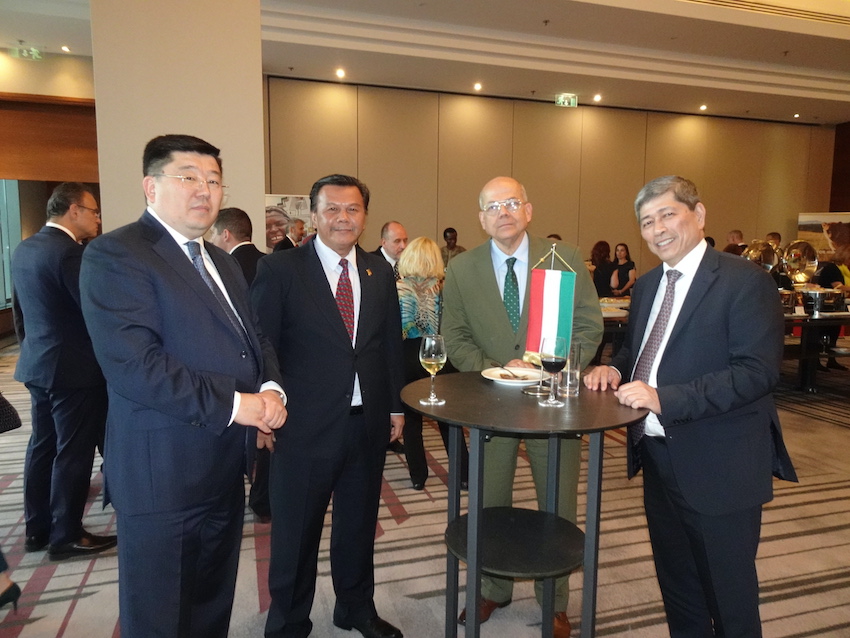
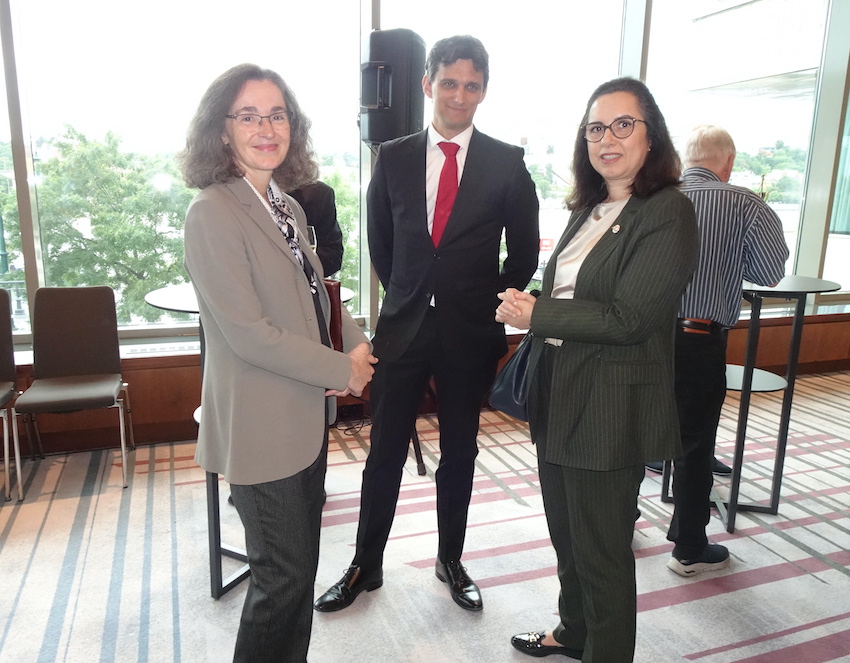
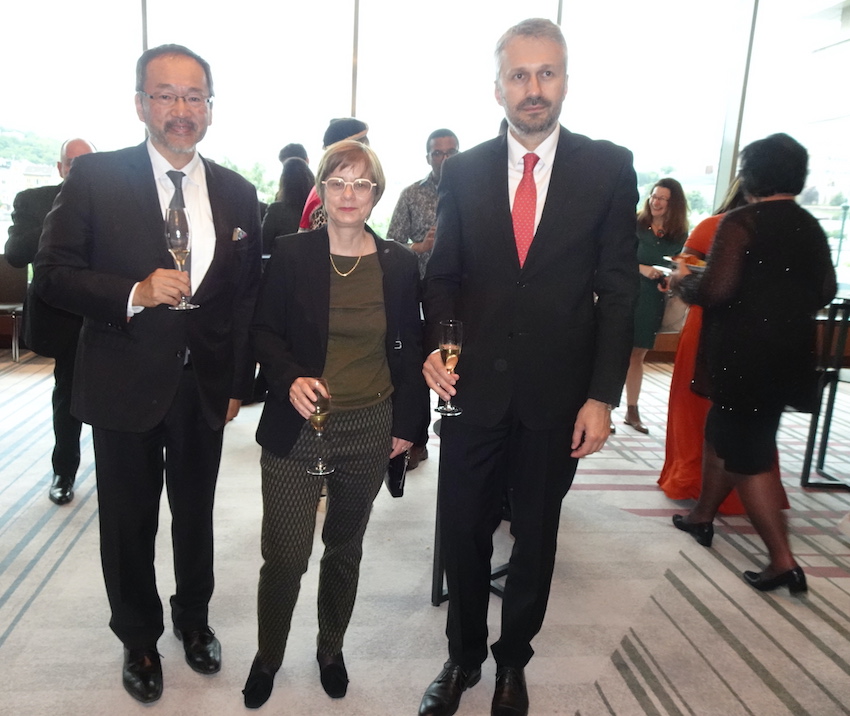
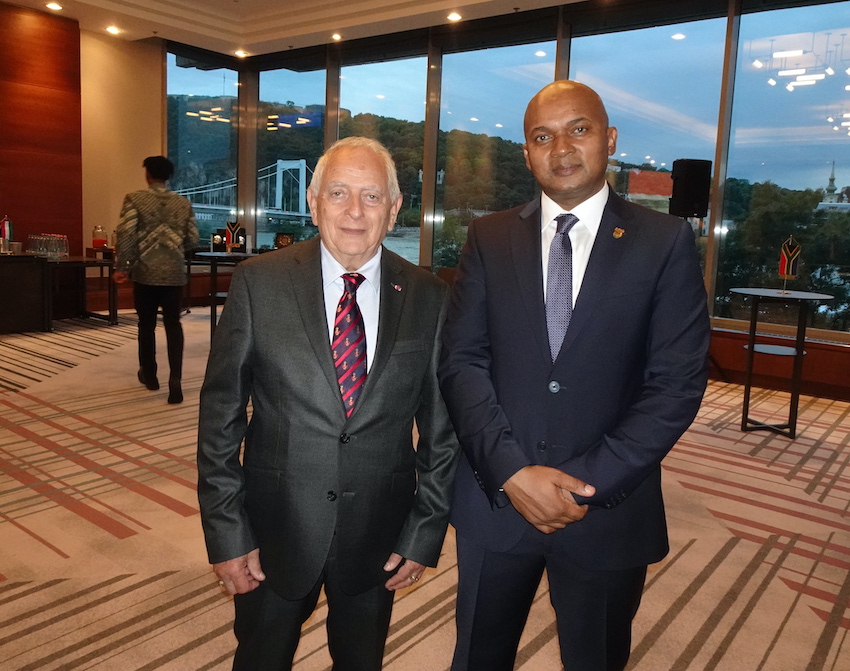
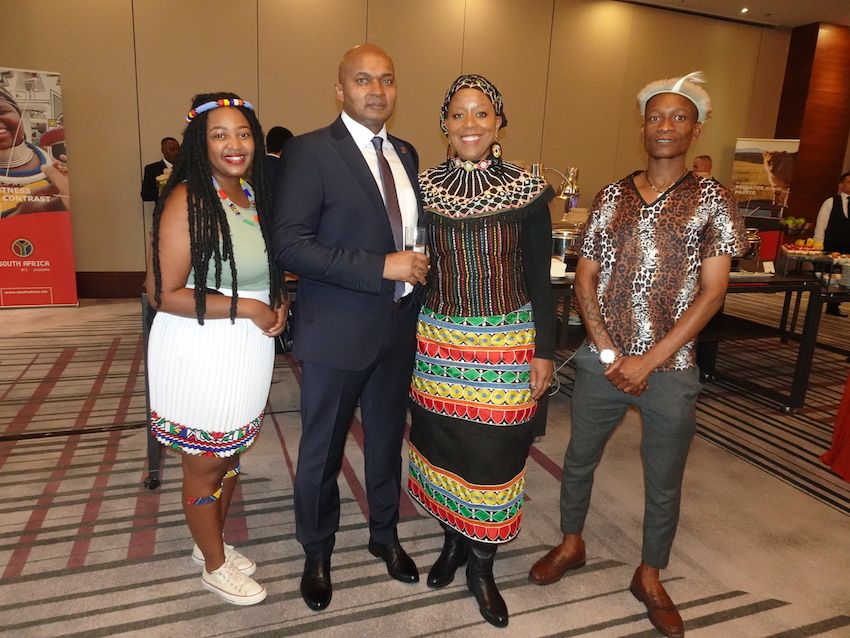
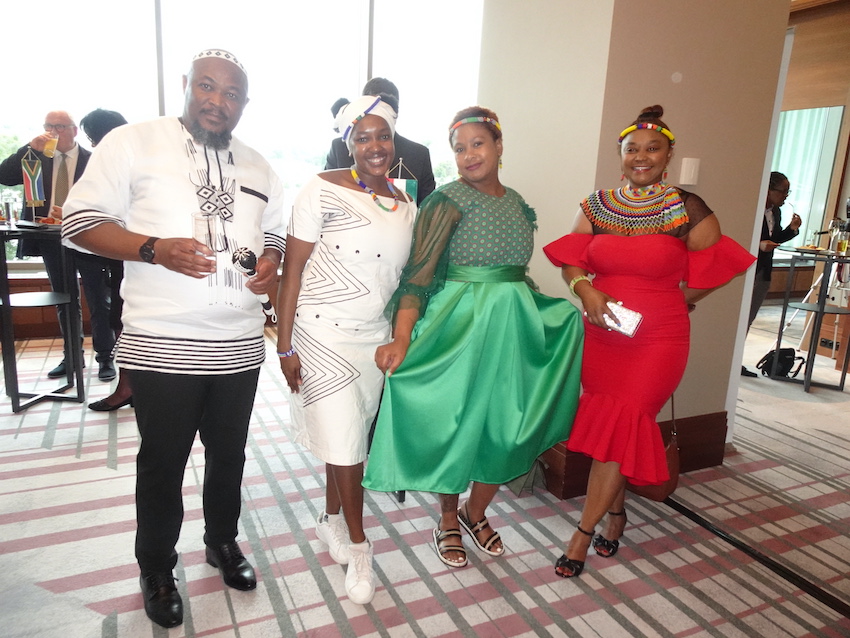
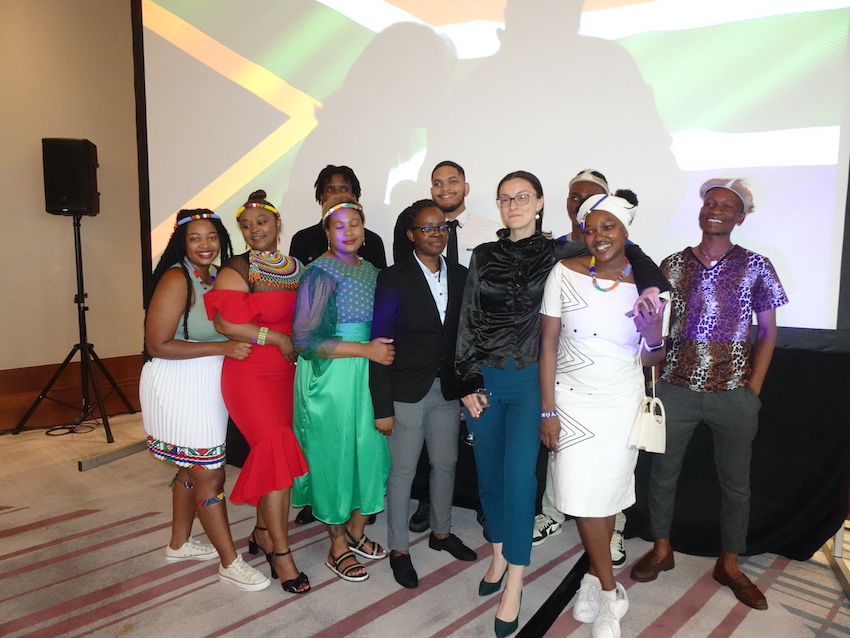
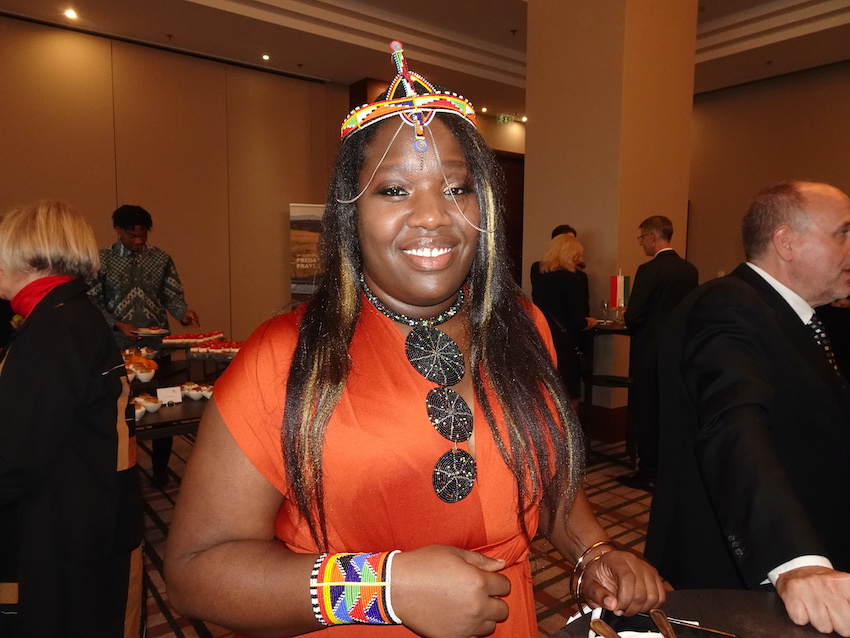
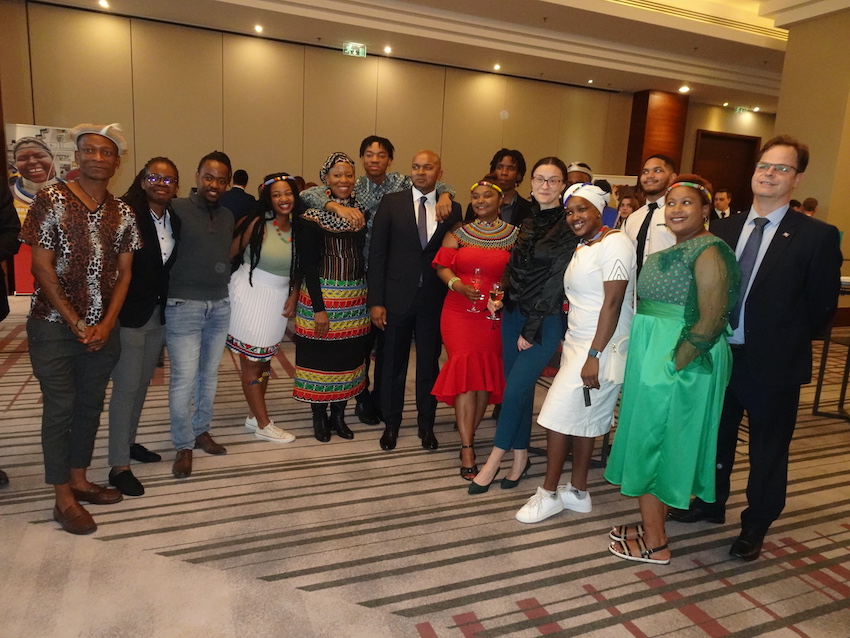
In his remarks, the Head of Mission greeted the guests, thanked the presence of Mr. István Jakab, Deputy Speaker of the Hungarian Parliament, and stressed:
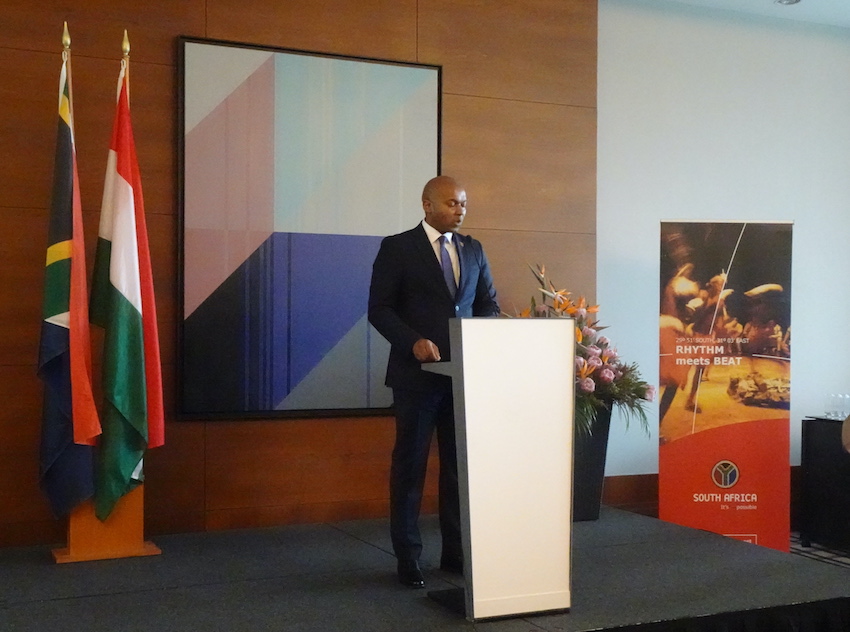
“On behalf of the Government and People of the Republic of South Africa, it is my pleasure to extend a warm welcome to you. The 27 April 2023 marked the 29th anniversary of South Africa’s first democratic elections. This day is commemorated every year to honour those unsung heroes and heroines who fought for our freedom and paved the way for a democratic society. During this period, we also reflect on the progress made over our democratic journey thus far, and consider how we can further strengthen our democracy.
This year, South Africa celebrates our Freedom under the theme: “Consolidating and Safeguarding Democratic Gains” to mark the country’s transition from an oppressive apartheid regime to a free democratic country. This commemoration comes at a time when government continues to fast track implementation of a number of measures to stabilise the economy in response to the damaging impact of COVID-19 and energy challenges.
We are deeply honoured that today you join us in celebrating our Freedom Day, a day we do not take for granted. Our freedom was entrenched with the adoption of South Africa’s Constitution in 1996, ushering in a new social order of constitutionalism underpinned, among others, by the values of human dignity and the achievement of equality and the advancement of human rights and freedoms, non-racialism and non-sexism.

South Africa remains a country in transition towards the ideal espoused in our constitution and implements our international mandate fully alert to our challenges and opportunities. In this context, we use our membership in international fora such as the G20 and the BRICS to advance the views and interests of South Africa in our quest to tackle the challenges of poverty, unemployment and inequality.
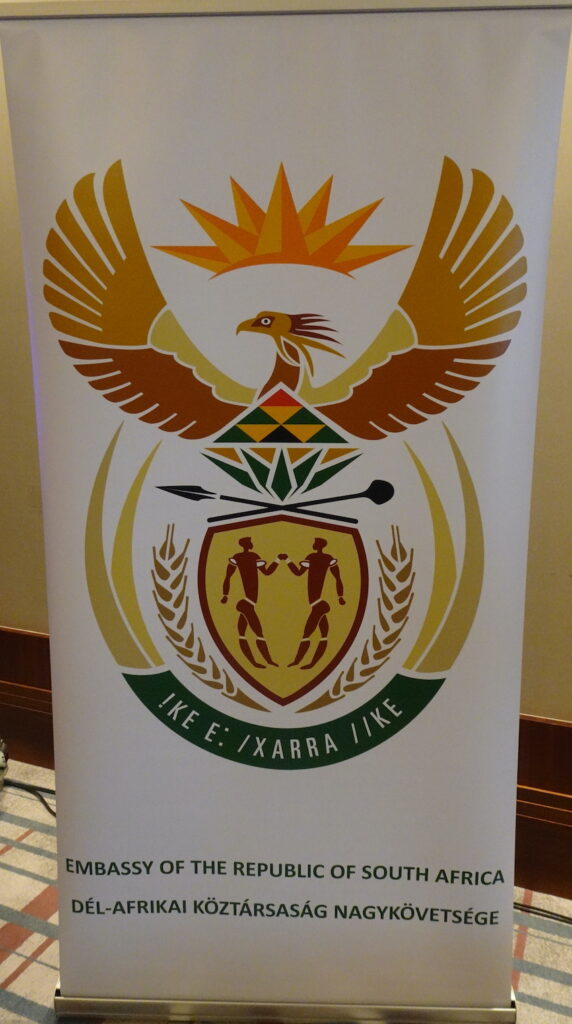
Today, South Africa and Hungary enjoy cordial diplomatic relations spanning political, social and economic spheres, punctuated by high-level engagements since 1999, when President Mandela visited Hungary as part of his last official visits before leaving office.
We recognise and are grateful for Hungary’s support to South Africa, especially in the area of education and youth development through the Stipendium Hungaricum Program. To date, more than 150 young South Africans have benefitted from this program.
As I conclude allow me to once more thank you for gracing this occasion and let me take this opportunity to thank the Embassy staff for making it possible.
Ladies and Gentlemen, please join me in proposing a toast to South Africa and Hungary.”


Then Mr. István Jakab, Deputy Speaker of the Hungarian Parliament addressed the audience:

“On behalf of the Hungarian National Assembly and the Hungarian people, I would like to take this opportunity to express my congratulations and sincere good wishes to Ambassador Tsengiwe and his embassy staff, as well as to the friends of South Africa present.”
“The democratic elections on 27 April 1994 marked the success of a long struggle and the end of a system based on racial discrimination. The democratic transition ushered in a period of reconciliation.Nelson Mandela, South Africa’s first democratically elected President, was an iconic figure in the struggle against apartheid and a prominent politician in promoting national consensus in South Africa.
In 2023 Hungary will also commemorate the 10th anniversary of the death of Nobel Peace Prize laureate Nelson Mandela, whose legacy has been preserved in Budapest at the Nelson Mandela Memorial Park on Gellért-hill since July 2022.
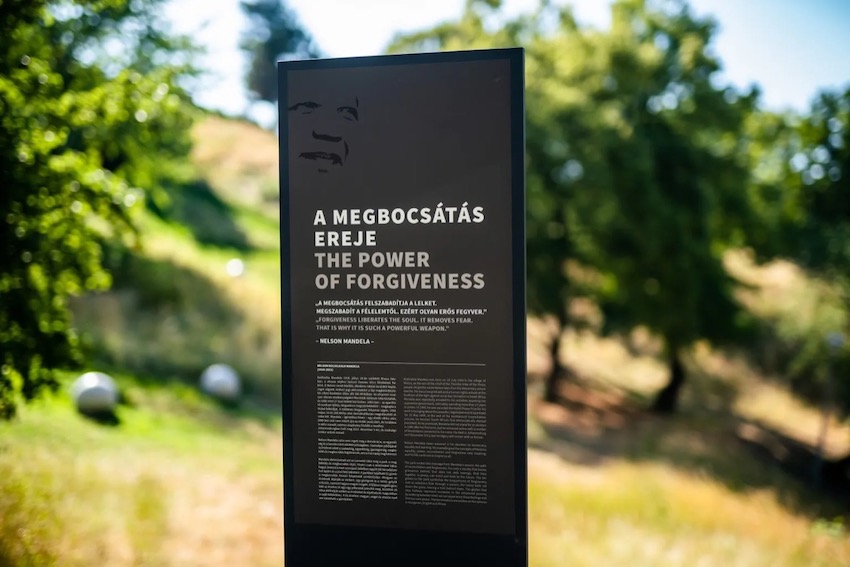
In 1990, Hungary was the first Eastern and Central European country to establish diplomatic relations with the Republic of South Africa. Today we have an effective cooperation and a multifaceted partnership based on historical ties as well as shared values and strategic interests. As one of the continent’s leading economies, South Africa is our most important export destination on the African continent, representing 27% of our total exports to Africa in 2022. In addition, we have launched a number of business projects in areas such as automotive, agriculture and food technologies, water resource management, innovative IT solutions, cyber defence and healthcare. Within the framework of the Stipendium Hungaricum Scholarship Programme, the Hungarian state has been providing 100 scholarships per year to South African students at Hungarian higher education institutions since 2016.
In formulating its policy towards Africa, the Hungarian Government took into account the dynamic development and economic growth and potential of the continent’s emerging economies, including that of Republic of South Africa. In conclusion, I raise my glass to the friendship between our countries, to the prosperity of South Africa and its people.”

The official part continued with a reception where the attendees could enjoy excellent specialities from African and international gastronomies.
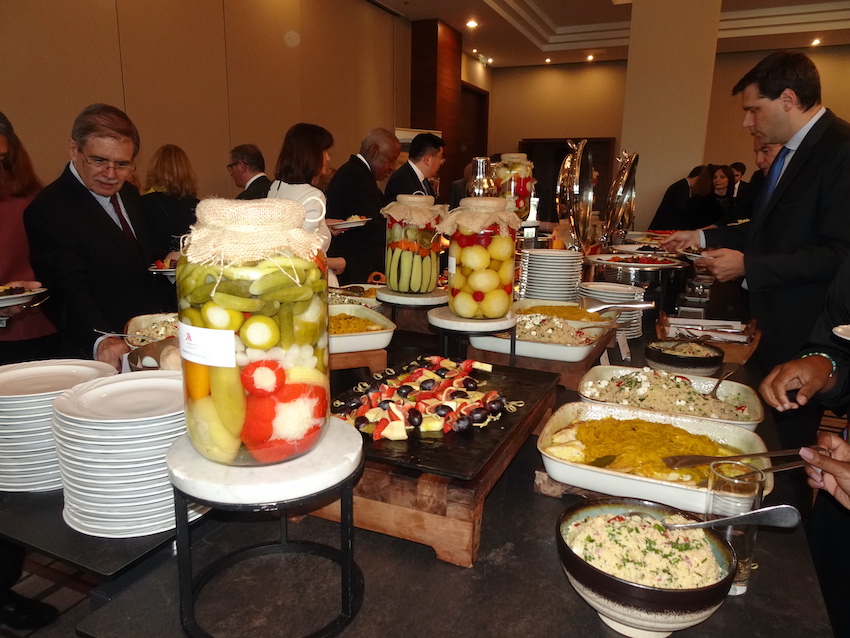
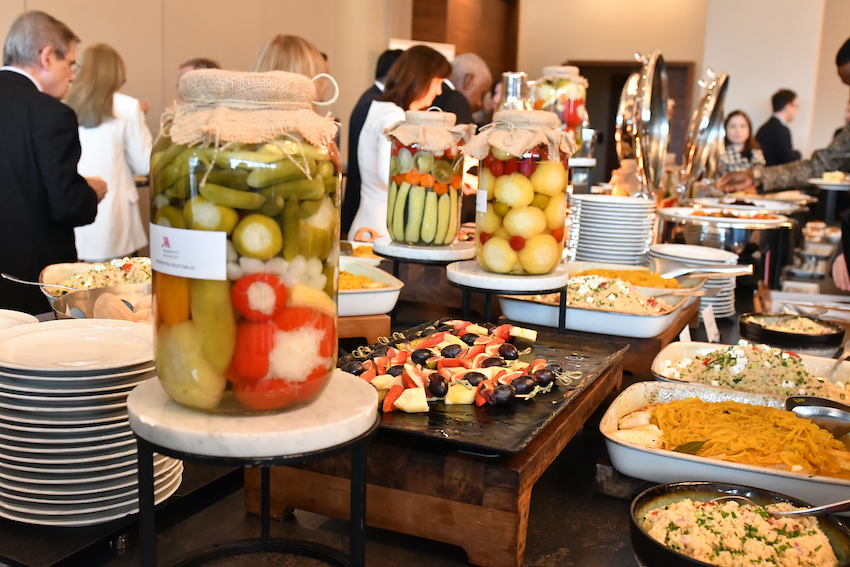
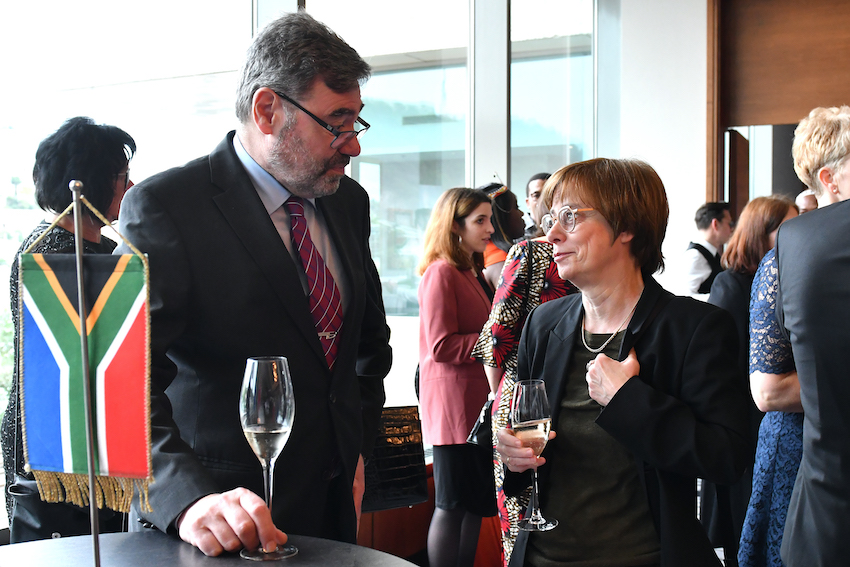
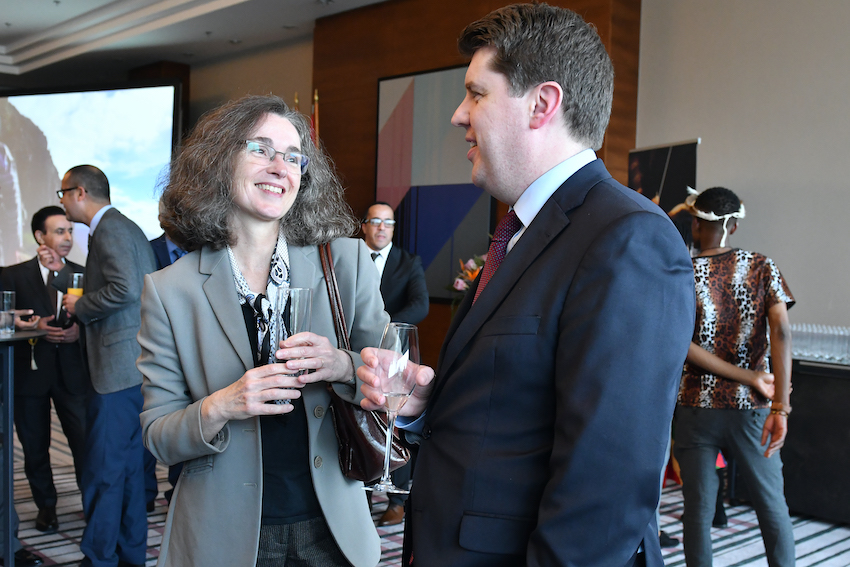
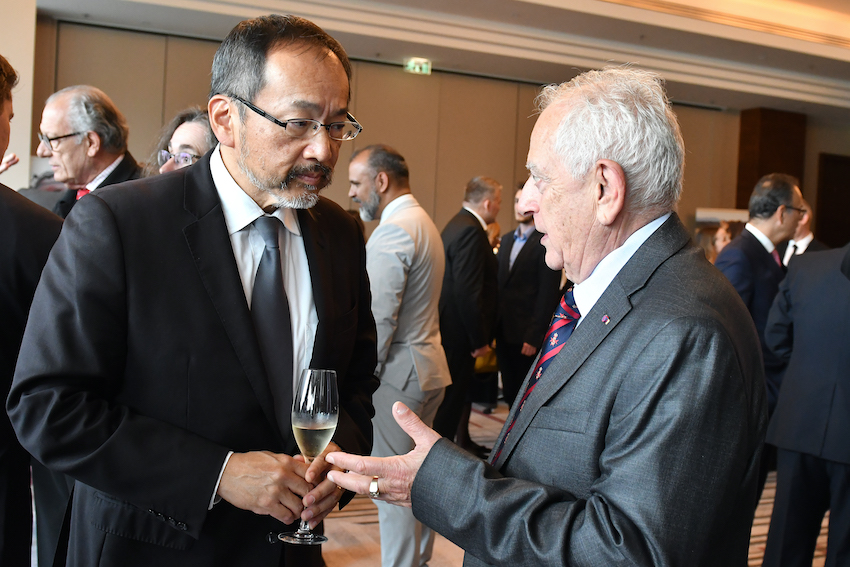
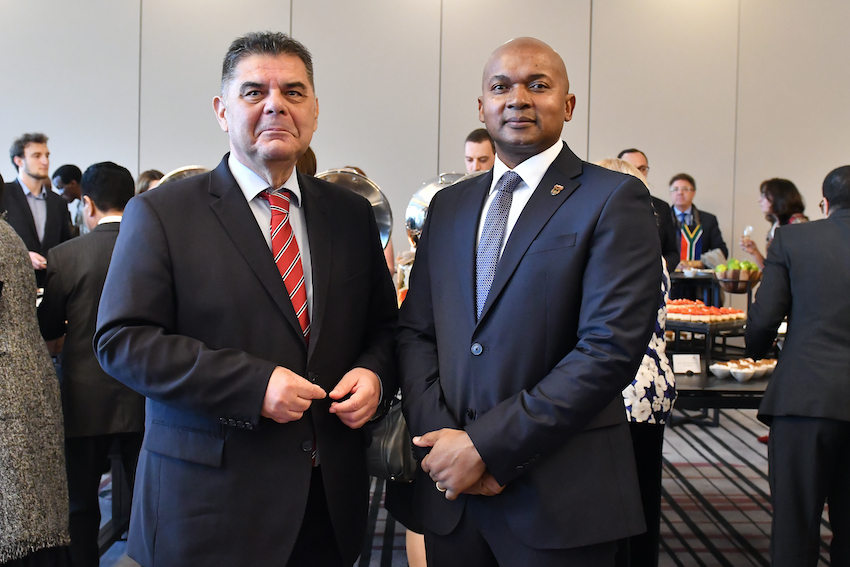
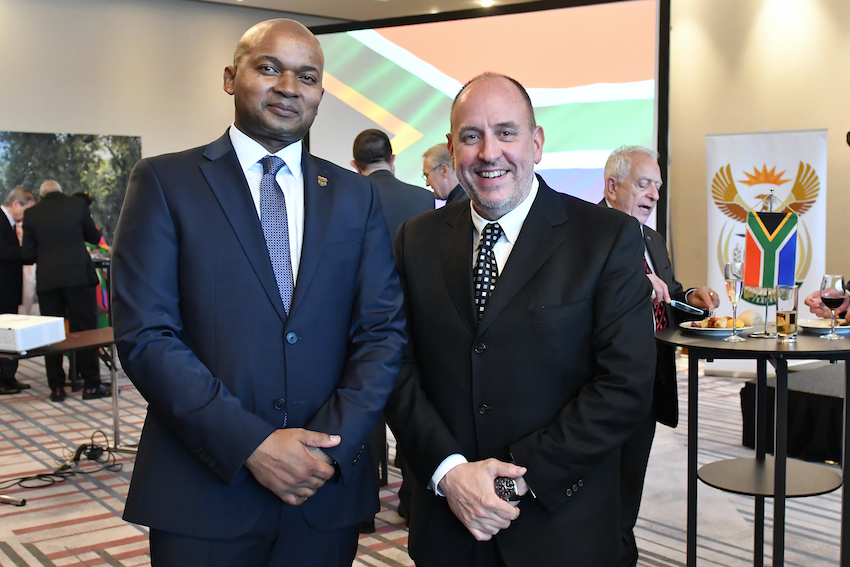
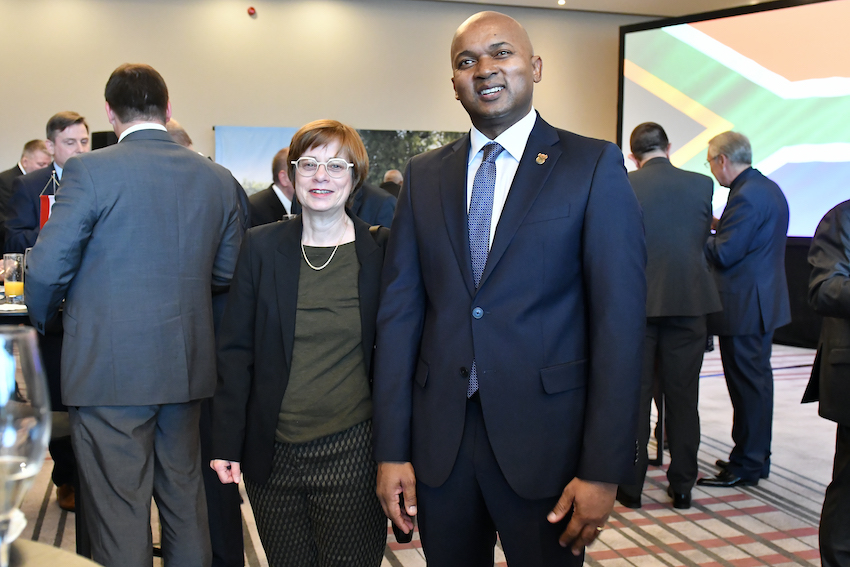
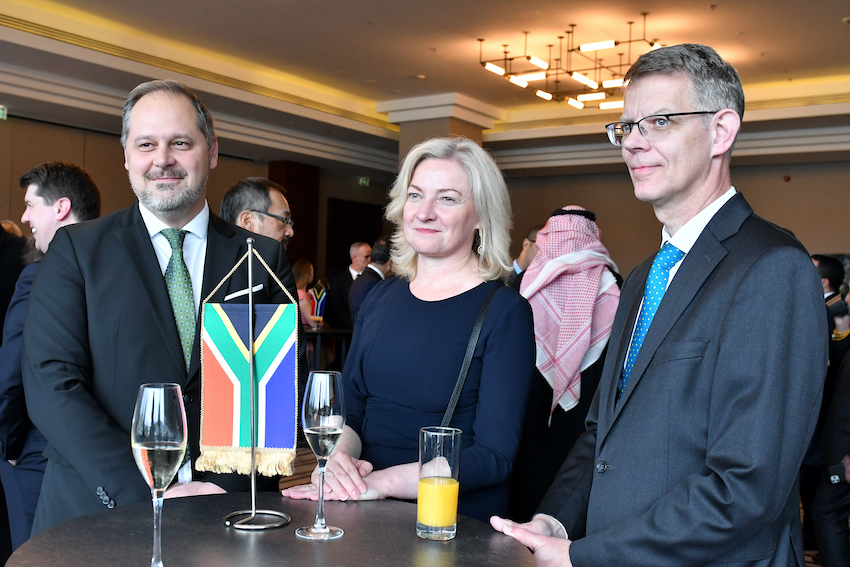
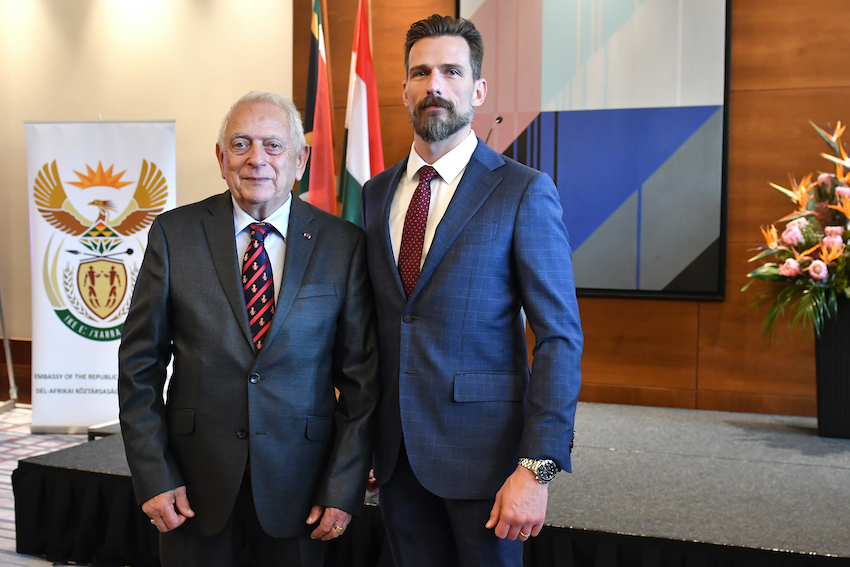
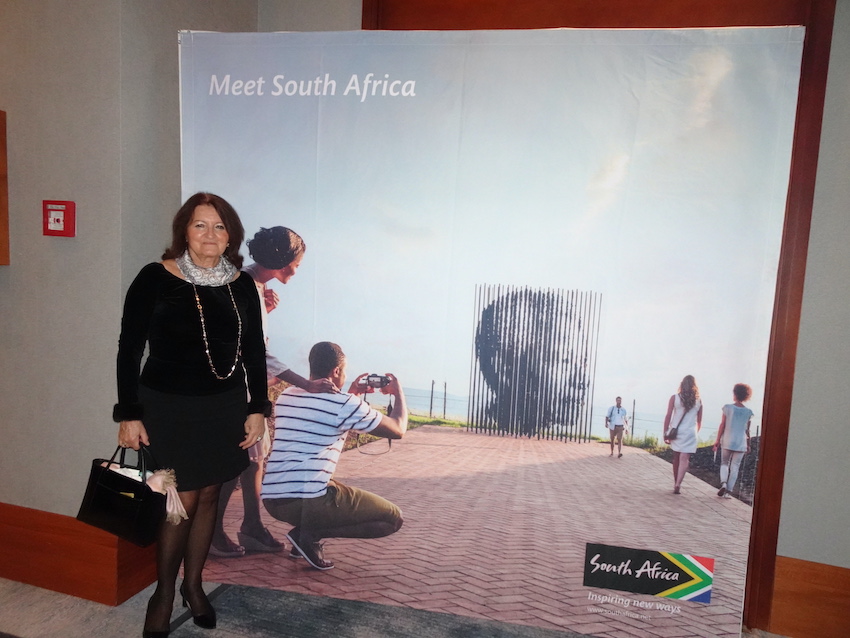
10-Year Remembrance of Nelson Mandela’s Passing
The Legacy Lives On Through You
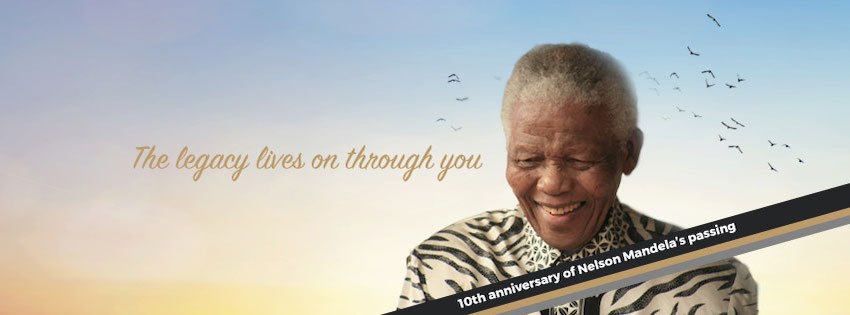
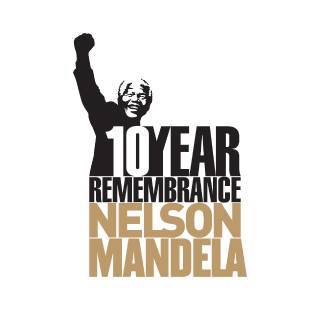
5 December 2023 marks the 10th anniversary since Nelson Mandela (1918-2013) passed away, whilst South Africa commemorates his 105th birthday on 18 July 2023. He was a man, a leader and a true statesman who made significant changes in the history of 20th century and contributed to shape the 21st.
South Africa pays tribute with great honour and respect to its Great Leader, their beloved Madiba, for the remarkable life he dedicated to his country, with essential humanism that guided him, with his deep commitment to human rights, freedom and justice and his long and persistent anti-apartheid fight. Nelson Mandela remains a symbol of power by resisting oppression.
“To be free is not merely to cast off one’s chains, but to live in a way that respects and enhances the freedom of others.” – he said.
The 1993 Nobel Peace Prize was awarded jointly to Nelson Rolihlahla Mandela and Frederik Willem de Klerk for their work to peacefully terminating the apartheid regime and laying the foundations for a new democratic South Africa. Mandela made the difference.



International Nelson Mandela Day, also known as Mandela Day, was officially set by the United Nations in November 2009. It is an international observance in honour of Nelson Mandela, celebrated annually on his birthday, 18 July.
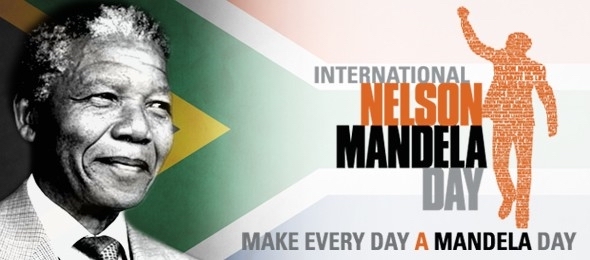
In 2014, the UN General Assembly established the Nelson Mandela Prize – an award presented every five years to two laureates, recognizing the achievements of those who went far and beyond to serve humanity.
South Africans miss Madiba, his deep love for the people of his homeland, and they preserve his outstanding legacy, values and ideals: freedom, peace, democracy, equity, unity, human dignity, equal opportunities, forgiveness, compassion and solidarity.
“I have cherished the ideal of a democratic and free society in which all persons live together in harmony and with equal opportunities. It is an ideal which I hope to live for and to achieve. But if needs be, it is an ideal for which I am prepared to die.”
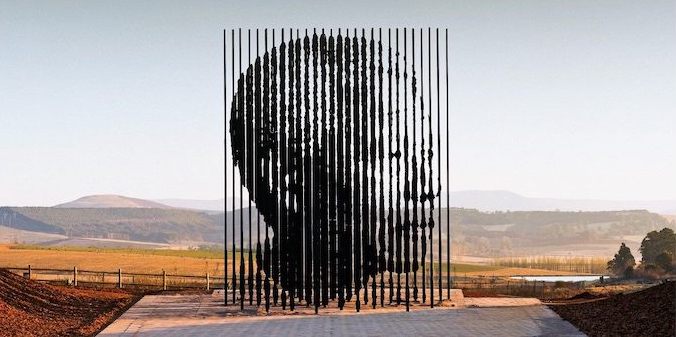
Sources: Embassy of the Republic of South Africa in Budapest,
United Nations and UNESCO





